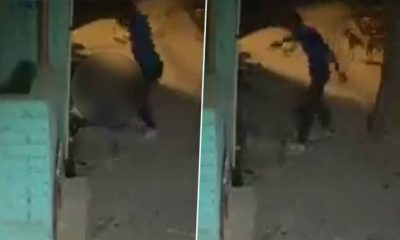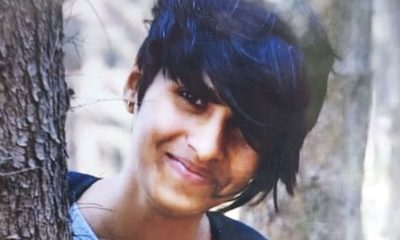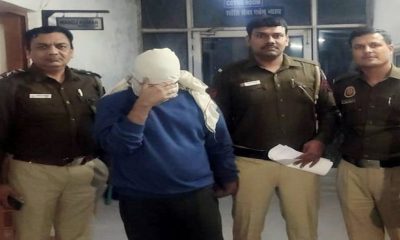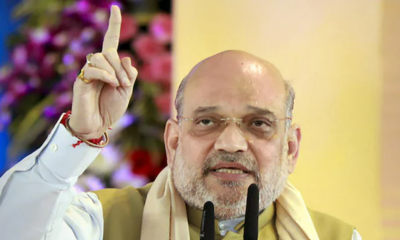India News
Shraddha wanted to leave him before he chopped her off into pieces, Aaftab’s polygraphy test done, NARCO test on Dec 1
On the other hand, the Delhi Police have written letters to several platforms including Google Pay, Paytm, Bumble, Facebook, Instagram asking for details on Aaftab’s accounts.
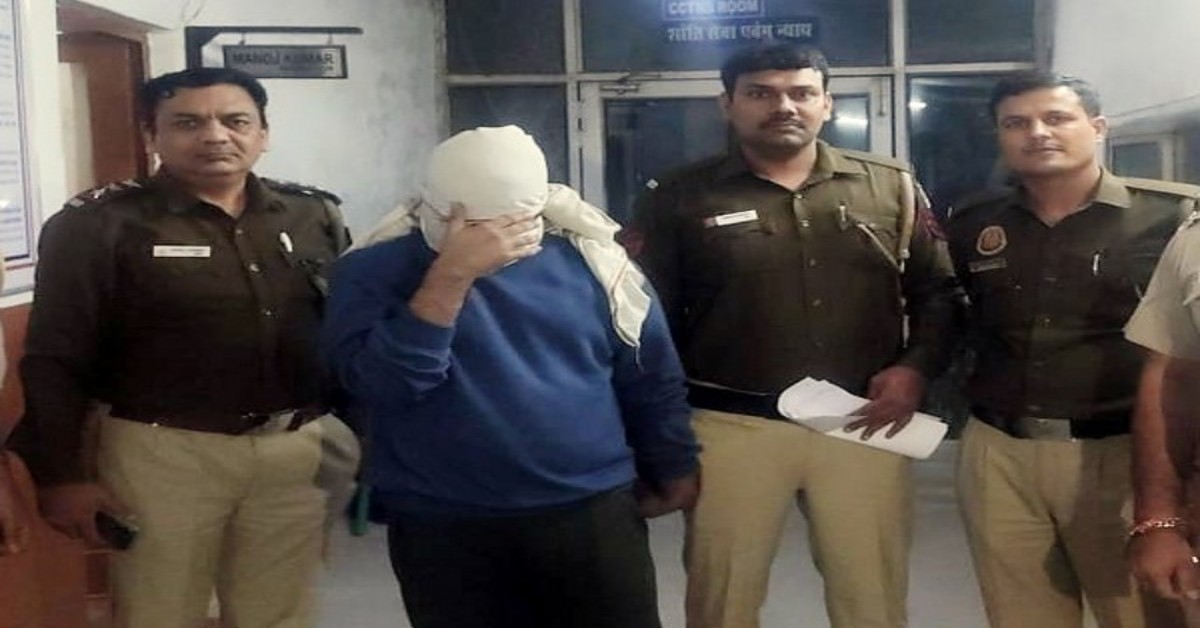
Shraddha Walkar was troubled by the violence of her live-in partner Aaftab Amin Poonawala and wanted to leave him.
The reports claim that in May earlier this year, Aaftab and Shraddha had decided to live separately. However, Aaftab did not like this thing and he felt that Shraddha would get involved with someone else. After this, Aaftab killed Shraddha and cut her into pieces.
Aaftab’s polygraphy test was done on Tuesday amid tight security. BSF was deployed outside Rohini FSL as there was an attempt to attack Aftab here after his questioning on Monday evening. Now Aftab’s narco test will be done on December 1. Delhi Police has got its approval from the court.
Special Commissioner of Police Sagarpreet Hooda had appealed to the Delhi Court to get Aaftab’s narco test done on December 1, which has been approved. Aaftab’s narco test will be done at Baba Saheb Ambedkar Hospital.
BSF has been deployed outside the lab after the attack on Aftab on Monday. Two accused of the attack have been sent to jail on judicial custody for 14 days. Delhi Police have recorded the statement of Jimesh Nambiar, who got Shraddha a job. According to reports, Shraddha’s father has also got his statement recorded.
Read Also: Two workers in Tamil Nadu die of asphyxiation while cleaning sewer pit
Aaftab is very confident during interrogation
It has also been learned from various reports that Aaftab was very confident during interrogation. When he is questioned, he is very prompt in answering. This gives the impression that he gives a pre-thought answer.
The police also suspect that when Aftab was called for questioning by the Mumbai Police in September-October, some body parts of Shraddha were present in his Delhi flat.
Delhi Police seeks Aaftab’s information from apps
On the other hand, the Delhi Police have written letters to several platforms including Google Pay, Paytm, Bumble, Facebook, Instagram asking for details on Aaftab’s accounts. Some apps have also given details. Police have found some suspicious links of Google browsing, which were searched by Aaftab.
13 bones found so far, blood samples sent for examination
The police have so far found 13 bones on the trail of Aftab. Information about her jaw has also been received. The matter of recovery of some body parts from Gurugram has also come to the fore. Apart from this, other than bathroom and kitchen, FSL has also received samples of blood stains from the bedroom, which have been sent for examination.
The Delhi Police have also recovered some weapons from the jungle and from Aaftab’s flat. However, with which of these weapons was used to chip Shraddha’s body, it will be known after the CFSL report comes. In this case, no suspicious role of Badri, who got the flat to Aftab and Shraddha, has been found yet. He only showed them the house.
COVID-19: India dips to lowest tally since April 2020, active cases also decrease
All monks at Buddhist temples in Thailand fail drug test, defrocked
India News
Enforcement Directorate says Arvind Kejriwal is deliberately eating mangoes, sweets, taking sugar with tea to increase his blood sugar level and create ground for bail
The Enforcement Directorate (ED) made the claim before special judge for ED and CBI cases, Kaveri Baweja, who gave directions to the Tihar jail authorities to file a report in the matter which should also include Kejriwal’s diet chart.
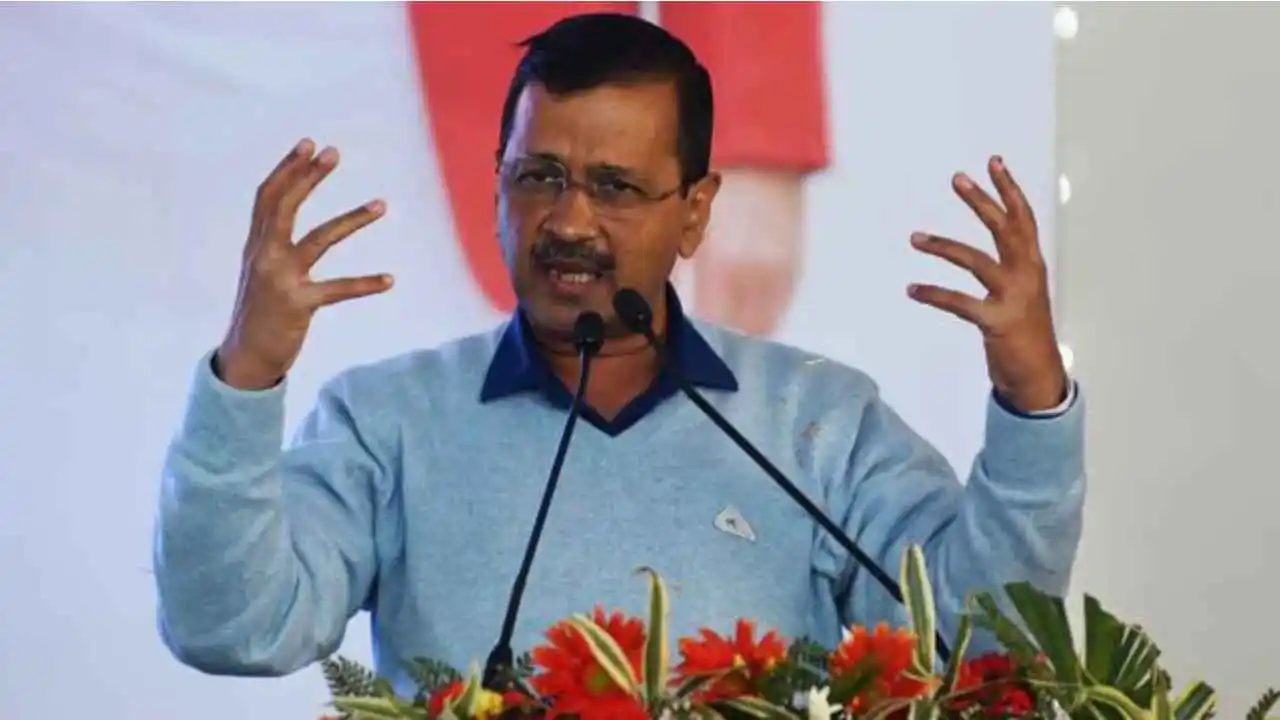
The Enforcement Directorate told the court on Thursday that Delhi Chief Minister Arvind Kejriwal, arrested in liquor policy case, is taking high sugar intake like mangoes and sweets every day deliberately in spite of suffering from type 2 diabetes so that he can create grounds for medical bail. The Enforcement Directorate (ED) made the claim before special judge for ED and CBI cases, Kaveri Baweja, who gave directions to the Tihar jail authorities to file a report in the matter which should also include Kejriwal’s diet chart.
Kejriwal had moved court and also sought permission to consult his regular doctor via video conference because his sugar levels were fluctuating. The judge directed the authorities concerned to file the report by tomorrow, when the court will take up the matter again.
Advocate Vivek Jain, counsel for Delhi CM Arvind Kejriwal responded to the ED’s argument and said this is an issue made by Enforcement Directorate so that home-cooked food should also be stopped. He said this would have a major impact on his health. Advocate Jain added that whatever Kejriwal is eating is as per his doctors prescribed dietary chart. He said the matter is sub judice and they do not have anything to say.
Advocate Vivek Jain objected to the Enforcement Directorate’s submission and said that the agency is making these allegations only for the media. He said that some toffee and other things are given to diabetic patients so that they can maintain their sugar levels. Jain added that Kejriwal is withdrawing his application and will file a better one later.
AAP minister Atishi Marlena said that Arvind Kejriwal had fallen ill and lost about 4.5 kg since his arrest on March 21. She addressed a press conference where the AAP leader said, Arvind Kejriwal is a severe diabetes patient but he never lets his health issue come as the way of his in the service to the nation.
India News
Enforcement Directorate seizes Shilpa Shetty’s husband Raj Kundra’s properties worth Rs 97 crore
The Enforcement Directorate said in a statement that the Mumbai zonal office of ED has provisionally attached immovable and movable properties of Kundra under the provisions of Prevention of Money Laundering Act (PMLA), 2002.

The Enforcement Directorate on Thursday seized businessman Raj Kundra’s properties worth Rs 97.79 crore. The siezed properties include a residential flat in Mumbai’s Juhu, which is named after his wife and Bollywood actor Shilpa Shetty. The Enforcement Directorate said the seized properties include another property which is a residential bungalow in Pune and Equity shares in the name of Raj Kundra.
The Enforcement Directorate said in a statement that the Mumbai zonal office of ED has provisionally attached immovable and movable properties of Kundra under the provisions of Prevention of Money Laundering Act (PMLA), 2002. The Enforcement Directorate began the investigation on the basis of a number of FIRs which were registered by Delhi Police and Maharashtra Police. It is being said that Kundra collected large sums of money in the form of bitcoins which were worth Rs 6,600 crore in 2017 from the public with the false promises of 10 % monthly return in the form of bitcoins.
The ED said that it was planned that the collected bitcoins will be used for bitcoin mining and investors will get to get a large return in Crypto assets. But the promoters cheated the investors as they concealed the ill-gotten bitcoins in obscure online wallets. The Enforcement Directorate revealed in its investigation that Raj Kundra received 285 bitcoins from the mastermind and promoter of Gain Bitcoin Ponzi Scam Amit Bhardwaj for setting up bitcoin mining farm in Ukraine.
The Enforcement Directorate in its statement said that the bitcoins were sourced out of proceeds of crime collected by Amit Bhardwaj from gullible investors. Since the deal did not go through, so Kundra is still in possession and enjoyment of 285 bitcoins which are valued at more than Rs 150 crore. Earlier a number of search operations were conducted in connection with this case, leading to the arrest of three people — Simpy Bhardwaj on December 17, 2023, Nitin Gaur on December 29, 2023, and Nikhil Mahajan on January 16, 2023.
India News
Religious outfit vandalises The Blessed Mother Teresa High School in Telangana after teachers object to students wearing Hanuman Deeksha dress
The Religious group broke glass windows and flower pots and pelted stones on the statue of St. Mother Teresa at the school’s entrance. The religious outfit also attacked Father Jaimon Joseph, the school manager.
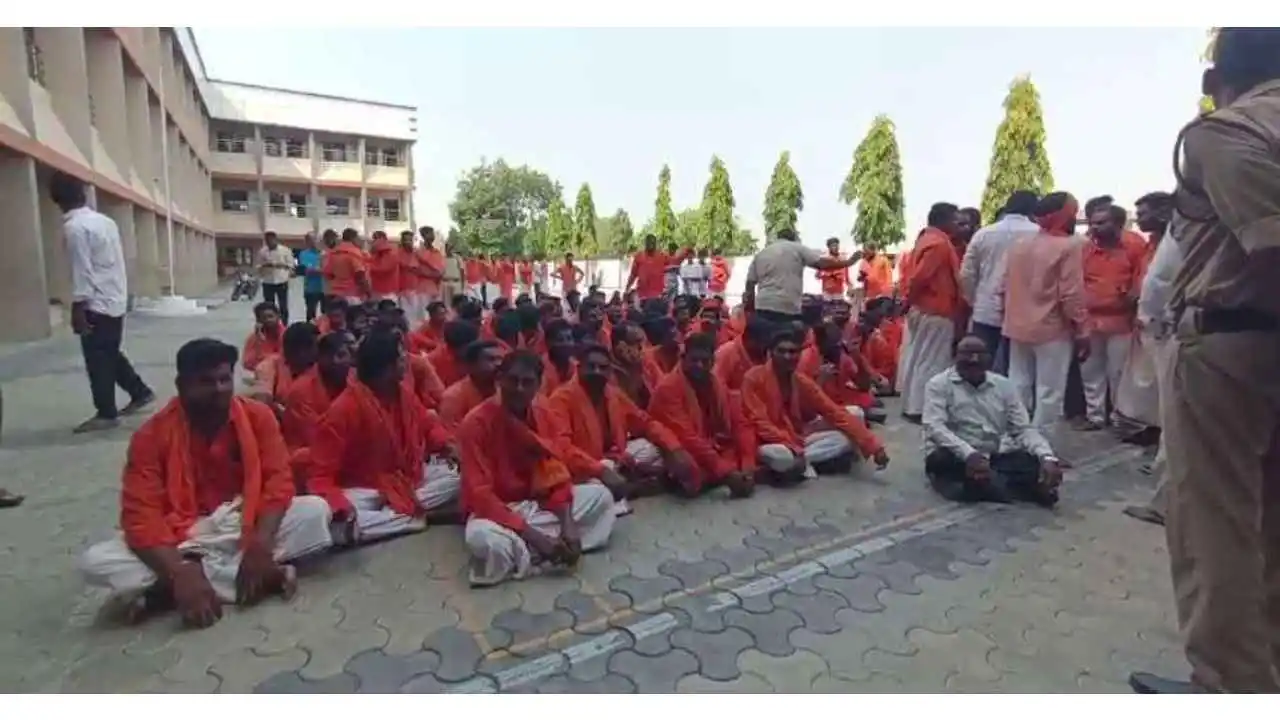
A religious group shouting Jai Shri Ram has vandalised a Catholic school and assaulted a priest in Telangana’s Mancherial district on Tuesday. The saffron mob staged protest and vandalised The Blessed Mother Teresa High School in Kannepally village. They broke glass windows and flower pots and pelted stones on the statue of St. Mother Teresa at the school’s entrance. The religious outfit also attacked Father Jaimon Joseph, the school manager.
The priest who is a member of the Missionary Congregation of the Blessed Sacrament (MCBS) said some of members of the mob even slapped and threw punches at him while others attacked him from behind. The religious outfit accused the school management of not allowing Hindu students to wear their religious costumes. The school authorities said the allegation made by the mob is misleading and has no truth in it.
Earlier, the students who wore religious costumes had informed the school principal that it was part of a 21-day special religious practice. The principal said he had only asked the students to bring their parents to school after noticing that they are not wearing the school uniform.
Later, members of the religious outfit started protesting outside the school. They demanded action should be taken against the management for stopping the students from entering the school and appearing for their annual examinations as they were wearing the Hanuman deeksha dress.
The priest said soon after the video started circulating on social media and became viral with hate messages against Christians. After this incident many Hindus reached the school and vandalized it. A complaint has been lodged at the local police station by the school management, but no arrests have been made so far. Instead of taking action against the miscreants, the police have filed a case against the school management for hurting religious sentiments of the local people.
-

 Entertainment18 hours ago
Entertainment18 hours agoBollywood stars Vidya Balan, Kartik Aaryan, Pratik Gandhi, Ileana D’Cruz, Mouni Roy, Radhika Madan, Mrunal Thakur attend Do Aur Do Pyaar premiere
-

 LATEST SPORTS NEWS22 hours ago
LATEST SPORTS NEWS22 hours agoIPL 2024: Delhi Capitals thrash Gujarat Titans by 6 wickets
-

 Cricket news16 hours ago
Cricket news16 hours agoHappy Birthday KL Rahul: Suniel Shetty wishes son-in-law KL Rahul on his 32nd birthday
-
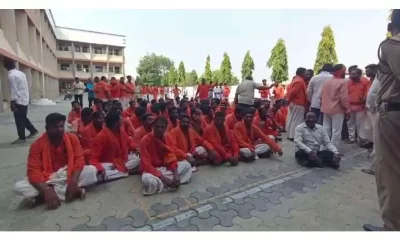
 India News19 hours ago
India News19 hours agoReligious outfit vandalises The Blessed Mother Teresa High School in Telangana after teachers object to students wearing Hanuman Deeksha dress
-
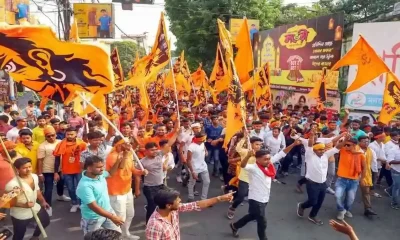
 India News21 hours ago
India News21 hours agoClashes erupt during Ram Navami procession in West Bengal’s Murshidabad district
-

 India News15 hours ago
India News15 hours agoEnforcement Directorate seizes Shilpa Shetty’s husband Raj Kundra’s properties worth Rs 97 crore
-
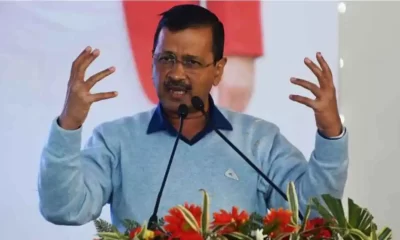
 India News13 hours ago
India News13 hours agoEnforcement Directorate says Arvind Kejriwal is deliberately eating mangoes, sweets, taking sugar with tea to increase his blood sugar level and create ground for bail

